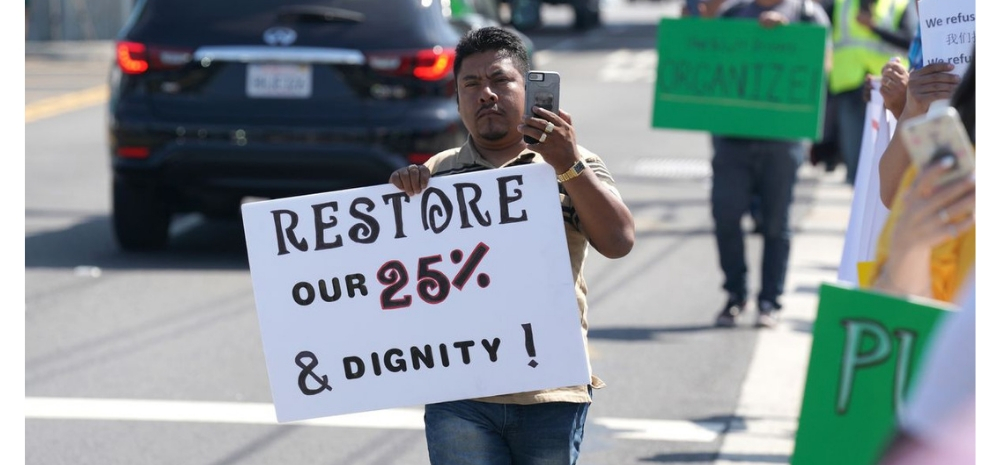Drivers Rebel Against Uber 2 Days Before Their $90 Billion IPO: What Is The Reason? Will This Impact Thier IPO?

Reports and statistics show that today’s generation prefers to use ride-hailing and pool services over purchasing a vehicle, simply due to the increasing prices of such amenities and traffic and parking problems.
With Uber making its highly anticipated debut in the Wall Street on 10th May, its drivers along with the drivers of Lyft and some other ride-hailing services are putting up a strike by turning off their apps on May 8 to protest low wages and other gripes. The strike, spearheaded by the Rideshare Drivers United Group, a group that advocates on behalf of ride-hailing drivers in Los Angeles has grown out to 10 major cities in the US as well as parts of the UK, Australia and South America.
The centre idea of the strike is to demand better pay, protection, transparency, benefits and support to the drivers.
Reason For Strike
Uber’s upcoming IPO is worth $90 billion, while the average hourly pay of an Uber driver is lesser than $19. The drivers are paid per ride rather than hourly, which puts them at the mercy of how many customers request for rides, while managing their own expenses in fuel and car maintenance.
Both Uber and Lyft have categorised their drivers as independent contractors, which means these workers won’t get the same rights as employees, like minimum wage, overtime, workers’ compensation, unemployment insurance, paid sick leave or on-the-job expenses. These companies believe that their businesses will be affected adversely if drivers are given the status of employees instead of contractors.
The central idea here lies behind the pay. Drivers want a guaranteed $28 per hour minimum rate so that after expenses like gas, insurance payments, maintenance, they bring in $17 per hour. A paper released that Uber drivers earn $9.21 hourly, after factoring in commissions, fees and vehicle expenses as well as health insurance and other expenses. The strike is meant to show Uber and Lyft, how crucial drivers are to a business model that is bringing in huge pay for executives and corporate employees.
Passengers can make complaints that are motivated by racism or chauvinism but if the drivers defend themselves, they get deactivated and once the complaints increase, they’re fired permanently. Drivers demand transparency about wages and deactivations from the driver app, including a voice and say in how the apps work as well as who gets on the vehicle.
Why Now: It all Accumulates From the Start
The protests have purposefully been planned to occur just before Uber’s biggest moment in 10 years. Uber and Lyft are bleeding money and drivers’ wage is the biggest cost they can control. Their business model is designed to ignore basic labor rights to earn profits. Uber is expected to be valued at close to $100 billion. According to the SEC filing, the top five executives at Uber made a combined $143 million in 2018, while the people who perform the actual labor do not nearly enjoy a share as large as what they produce.
While drivers have tried to formally unionize, independent contractors aren’t covered by the same organizing protections as employees when it comes to labour laws. Both the companies are working towards a future where drivers are a much smaller part of the picture for their businesses, relying instead on self-driving vehicles. Without drivers, both services would get to keep more of the revenue from each ride.
Both Uber and Lyft have built their businesses on the backs of drivers. Realising their worth and providing for their basic needs can be expected out of the giants. It is estimated that about 5,000 drivers will log off the driving apps at some point throughout the day of action, marking this as the biggest strike against cab-hailing services in the history. Autonomous vehicles are likely still years away from becoming a reality, and, in the meantime, these tech companies will need to retain drivers if they want to survive.

Comments are closed, but trackbacks and pingbacks are open.